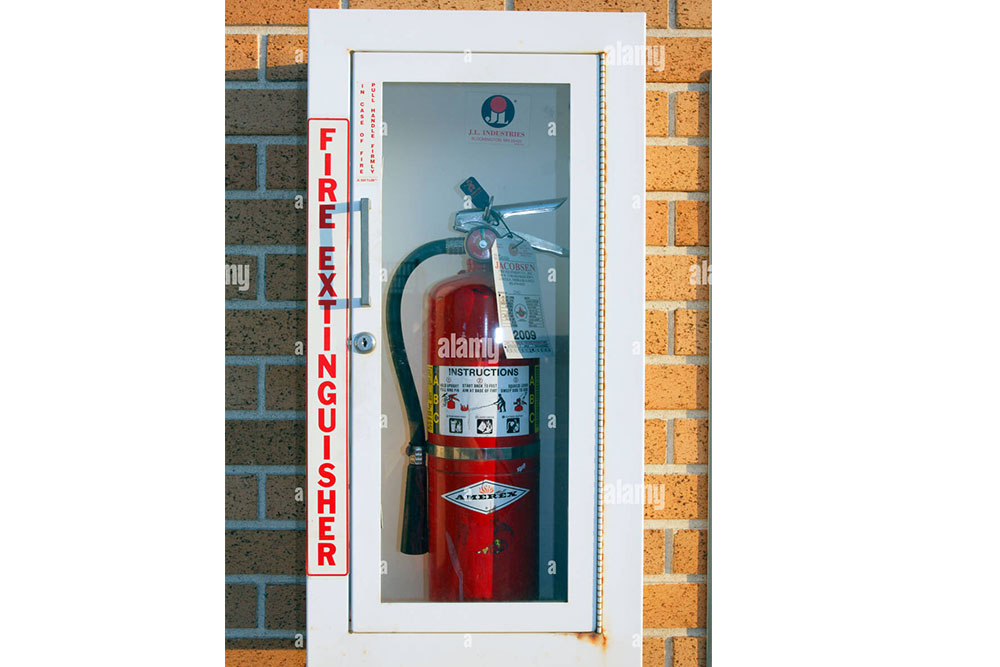 20
Mar
20
Mar
Mastering The Basics Of Restaurant Fire Safety
- 0 Comment(s)
- March 20, 2025
Restaurants are bustling environments filled with open flames, high-temperature equipment, flammable cooking oils, and electrical connections. These factors make fire safety a critical component of managing a restaurant. Fires can cause severe property damage and disrupt operations, leading to lost revenue or even permanent closure. Understanding the fundamentals of restaurant fire safety is integral for protecting your business, employees, and customers.
Preventative Maintenance for Fire Safety
Maintaining kitchen equipment is one of the most effective ways to minimize fire risks in a restaurant. Install an automatic fire suppression system to protect against grease fires, which are among the most common hazards. These systems work by dispersing flame-suppressing chemicals and shutting off fuel or electricity when activated. Semi-annual professional inspections are necessary to keep them in top working condition.
Portable fire extinguishers serve as a backup to suppression systems and are essential tools during emergencies. For kitchen fires involving grease or oils, Class K extinguishers are designed to handle high-temperature flames effectively. Place Class ABC extinguishers in areas where paper, electrical, or other materials may catch fire. Regular maintenance of electrical equipment is equally important. Frayed cords, broken outlets, and combustible items near heat sources can lead to accidents. Keeping an eye on exhaust systems for grease buildup also reduces the likelihood of fire. High-volume kitchens should inspect these systems quarterly, while moderate operations benefit from semi-annual inspections.
Staff Training on Fire Prevention
Employee training plays a key role in maintaining fire safety. Staff members need to understand how to operate fire extinguishers properly, using the PAST method: pull the pin, aim at the base, sweep side to side, and maintain a distance of ten feet. This basic knowledge empowers staff to act quickly during a fire.
Routine cleaning is another important part of fire prevention. Grease buildup on hoods, vents, and surfaces can restrict airflow and fuel fires. Employees should clean cooking equipment, walls, and work areas daily to keep them free of flammable residues. Proper handling of flammable materials, like storing them in sealed containers away from heat sources, also helps reduce risks. Removing ashes from wood-burning ovens daily and storing them in metal containers away from buildings ensures safety. Smoking policies must also be enforced to prevent fires from improperly disposed of cigarettes.
Proper Storage and Use of Flammable Materials
Flammable liquids require careful handling and storage to prevent accidents. Keep them in their original or tightly sealed containers and store them in ventilated areas away from heat or cooking equipment. Chemicals used in cleaning should never be mixed unless explicitly instructed by their labels, as improper mixtures can cause fires or hazardous reactions.
Employees must also dispose of soiled rags, trash, and other combustible materials promptly. A tidy environment minimizes fire hazards and ensures safer working conditions. Paper products, linens, and food supplies should be kept away from stoves and fryers. Staff should always clean up spills immediately to avoid spreading flammable substances.
The Importance of Emergency Preparedness
Preparation is the foundation of fire safety in restaurants. Staff members should know how to shut off gas and electricity in case of a fire. Train at least one employee per shift to manage these systems and handle emergencies. An evacuation plan is essential for guiding both employees and customers to safety. Assign a designated evacuation manager to call emergency services and oversee the process.
Regular fire drills and emergency training sessions help employees stay prepared and confident. These exercises familiarize staff with the location of exits, fire extinguishers, and safety equipment. Reinforcing these procedures during onboarding and through annual refresher courses creates a safer workplace and reduces panic during real emergencies.
The Impact of Regular Fire Drills on Restaurant Safety
Fire drills are a powerful tool for building confidence and readiness among your staff. These drills create a structured approach for handling fire emergencies by simulating real-life scenarios. Conducting them regularly helps employees understand their roles, from shutting off gas and electricity to guiding customers to safety. Drills also familiarize staff with the layout of the restaurant, including emergency exits and fire extinguishers.
By practicing, teams can identify gaps in the emergency plan and make improvements. Fire drills are not just about compliance; they demonstrate a commitment to safety, ensuring everyone knows what to do when seconds count.
The Importance of Maintaining Kitchen Hood Systems
Kitchen hood systems are integral to fire safety in restaurants, as they manage smoke, grease, and heat generated during cooking. Without proper maintenance, these systems can become a fire hazard, with grease buildup leading to flare-ups. Regular cleaning and inspections of hoods, filters, and ducts prevent grease accumulation and reduce fire risks.
Semi-annual inspections by professionals are recommended to maintain optimal performance. For high-volume kitchens, quarterly checks may be necessary. Clean hoods not only enhance safety but also improve air quality and equipment efficiency, benefiting both employees and patrons while keeping your establishment compliant with safety standards.
Partnering with Professionals for Fire Safety
Maintaining a safe restaurant environment requires expertise, and partnering with fire safety professionals simplifies this responsibility. Experts can assess your premises, identify risks, and implement solutions tailored to your needs. They provide services like fire suppression system inspections, extinguisher maintenance, and emergency plan development.
At Yadkin Fire & Safety, we focus on supporting businesses by offering prompt, reliable services and customized advice. We are dedicated to helping you prevent accidents and maintain compliance through a proactive approach. With professional guidance, you can reduce risks, safeguard your operations, and create a safe environment for employees and customers alike.
Why Routine Inspections Matter
Regular inspections of fire safety systems are vital for maintaining a safe environment. Fire suppression systems, extinguishers, and alarms must be checked frequently to ensure they operate properly. Exhaust systems in high-volume kitchens require close attention to prevent grease buildup, which can ignite fires.
Routine checks also include examining electrical equipment for damage, such as exposed wiring or faulty outlets. By addressing these issues before they become major problems, you can reduce risks and extend the life of your equipment. Keeping detailed records of maintenance and inspection schedules helps you stay organized and meet fire safety regulations.
The Role of Customer Safety in Fire Preparedness
Protecting customers during a fire is a key responsibility for any restaurant owner. Educating your staff about evacuation procedures ensures they can guide patrons to safety. Emergency exits should always be accessible, clearly marked, and free of obstructions.
Staff members must be trained to remain calm and assist customers with special needs during evacuations. Practice drills that include scenarios involving full dining rooms to prepare for real-life situations. Keeping customers safe during an emergency builds trust and reinforces the restaurant’s commitment to their well-being.
The Value of Fire Safety Education
Teaching staff about fire safety builds a culture of awareness and responsibility. Employees who understand fire hazards are better equipped to prevent accidents and respond effectively in emergencies. Training should include hands-on demonstrations of extinguisher use, cleaning protocols, and emergency response steps.
At Yadkin Fire & Safety, we focus on helping businesses like yours maintain safe environments by offering guidance on fire protection systems and staff training. Our approach is rooted in providing education alongside quality services, so you can make informed decisions about fire safety.
Mastering restaurant fire safety involves combining preventative maintenance, thorough training, and emergency preparedness. These efforts help reduce risks, protect lives, and preserve your business. By implementing the steps outlined here, you can create a safer workplace and dining experience. At Yadkin Fire & Safety, we are dedicated to supporting your fire safety needs with expertise and reliable service. For tailored solutions or to learn more about fire protection systems, contact us today.

